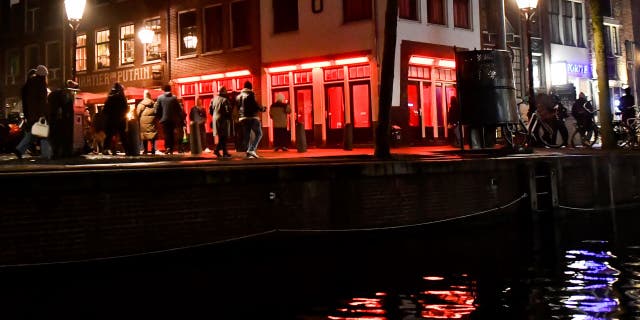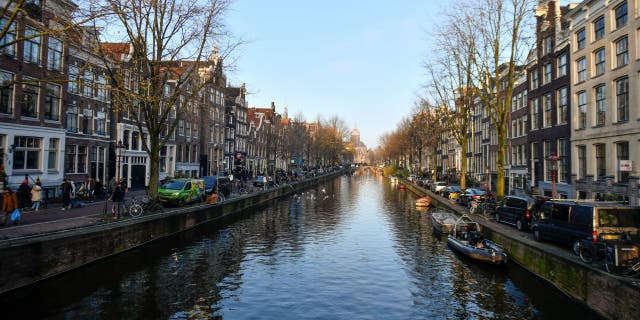Amsterdam’s world-famous red-light district could look very different going forward as the Dutch city prepares to vote on an ordinance that would permanently close brothel window curtains in order to more adequately abide by the #MeToo movement and combat nuisance tourism.
The red drapes that line brothel windows in the renowned DeWallen district of Amsterdam are currently only closed when a client is being entertained or if a sex worker is absent. This would change if the municipal council votes to keep them permanently shut this week, The Telegraph reported.
The plan, proposed by the liberal D66 party, would mean the brothel curtains stay shut, and instead of sex workers being able to entice potential customers from the window, clients would book appointments using a QR code on their smartphones.
Some sex workers have voiced opposition to the plan, arguing it will hurt their business and make them less safe by preventing them from assessing potential dangers a client might pose.
DUTCH PRIME MINISTER MARK RUTTE APOLOGIZES FOR THE COUNTRY’S HISTORICAL ROLE IN THE SLAVE TRADE
People walk near a red light inside the Amsterdam, Netherlands, Red-Light District on Dec. 10, 2022.
(Photo by Stefano Guidi/Getty Images)
“How can I attract clients with the curtains closed?” a sex worker named “Lucy” told The Telegraph. “They say it is for my protection, but that is nonsense. If someone denigrates me, I denigrate them back. It isn’t an automatic service I negotiate. If drunk people come, I don’t let them in.”
Politicians in favor of new process argue that online bookings replacing window negotiation will clean up nuisance tourism and change the perception people have of the city.
EUROPEAN PARLIAMENT PRESIDENT SAYS CORRUPTION BROKE TRUST THAT TOOK YEARS TO BUILD

De Wallen, Amsterdam’s red-light district, is internationally known and one of the main tourist attractions of the city. It offers legal prostitution and a number of coffee shops that sell marijuana.
(Photo by Stefano Guidi/Getty Images)
“The red-light district is not a lawless place,” Ilana Rooderkerk, head of the local branch of the D66, said about the plan. “Sex work has become a tourist attraction, accompanied by very undesirable, degrading behavior towards sex workers. This does not contribute to improving the position of women in the MeToo era.”
In addition to addressing the curtains in the red-light district, the measure will make other changes to crack down on nuisance tourism, including banning marijuana smoking in public areas, closing bars at 2 a.m. instead of 4 a.m., and closing window brothels at 3 a.m. instead of 6 a.m.
CLICK HERE TO GET THE FOX NEWS APP

General view of the Red-Light District in Amsterdam, Netherlands, Dec. 9, 2022. Amsterdam is the capital and largest city of the Netherlands.
(Photo by Stefano Guidi/Getty Images)
“We need to get rid of this image of Amsterdam as a city where you go to do all the things that aren’t allowed at home, such as drugs and prostitution,” Christian Democratic Appeal councillor Diederik Boomsma said.
“We need to overcome this jaded, faux-progressive understanding of freedom as liberation from all taboos and letting yourself go and return to a more mature understanding of freedom, as self-government.”
The overall push by lawmakers to clean up the red-light district has been dubbed the “stay away” campaign as it looks to discourage tourists from coming to the area with the intention of engaging in lawlessness.
“Some businesses misuse Amsterdam’s image to sell it as a place of ‘unlimited possibilities,'” Deputy Mayor Sofyan Mbarki said in a statement. “As a result, some groups of visitors think of it as a city where anything goes. This kind of tourism, as well as offerings specifically targeting these groups, is not considered desirable by the Municipal Executive.”